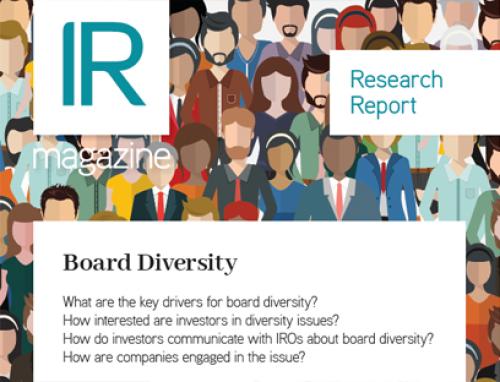At the best of times, investor relations can be an isolated role. IR teams tend to be small, often with just a single practitioner. There may be no-one else in the organization to bounce ideas off or simply chat about how the day went.
That isolation got worse for IROs – as it did for all employees – during the Covid-19 pandemic. From March 2020, home working became the norm, creating a new set of professional and personal challenges for IROs to deal with. It’s perhaps unsurprising, therefore, that IR mentorship schemes have taken off in popularity. Over the last two years, several IR associations have set up new programs, including the UK’s IR Society and NIRI’s New York chapter.
Mentorship schemes offer a valuable way for newer IROs to gain training and advice that may not be available inside their own company. Mentors also report many benefits of taking part, such as the satisfaction of helping others improve and the opportunity to reflect on their own career to date.
But making the programs work can be tricky, say IR associations. Matching the right mentor with the right mentee is vital. In addition, you need to provide sufficient structure to ensure the program runs well, but not so much that it can’t adapt to the individual needs of each pair.
Running a scheme
The Finnish Investor Relations Society (FIRS) has run a mentorship scheme since 2018. In its first year of operation, the program attracted 17 pairs – the equivalent of about 15 percent of FIRS membership at the time, says Tapio Pesola, member of the board of directors and senior IR adviser at Miltton Capital Markets. ‘That helped verify my assumption that there was a need for this sort of thing,’ he says.
Following the initial spike in interest, the number of pairs now stands at around six per year. 'The matching of mentees and mentors is actually a fairly straightforward process so even if only one mentee were to register, we could still start a program each year. I think it’s a good service for our members,' says Pesola.
FIRS’ program offers support through a professional trainer, as well as a WhatsApp group for mentors where they can share ideas. The association also organizes sessions where mentors and mentees swap partners to provide alternative viewpoints to the participants.
Pesola’s own experience of joining the IR industry showed him the value of such schemes. ‘I came to investor relations from communications, which I had done for 10 years,’ he explains. ‘I basically started from zero and had to build up knowledge of the stock exchange regulations and everything else. I did that by asking for advice from a lot of people. I think that’s how most people get started.’
What factors help to make a mentorship scheme run well? Getting the mentor and mentee matched up correctly is one of the most important tasks, say program organizers.
‘I have some experience of mentoring from both sides and it’s really individual what works,’ says Pesola. ‘Some people want to build skills or advance careers, others just want to discuss ideas and get some feedback. Some mentors are more structured in how they approach coaching, others are more off the cuff. The key thing is to understand what kind of help the mentee needs.’
You should also make sure mentors are motivated to take part, adds Pesola: ‘They have to have an interest in mentoring and finding the right approach for their partner.’
Another challenge is providing the right amount of support to each pair. ‘Mentor schemes are hard to do,’ says Gary LaBranche, president and CEO of NIRI National. ‘They can have too much structure – too many specific targets and goals – which makes people think of them as work. The other problem is when they are not structured at all, when there is very little guidance and you just put two people together. Finding the right combination is key.’
NIRI National has launched a new mentor scheme for 2022. While Covid-19 has reinforced the need for more connections between members, LaBranche says the project is also about supporting the association’s diversity goals.
‘The program stemmed from work done by NIRI’s diversity, equity and inclusion taskforce,’ he explains. ‘The task force recommended – and the board approved – several different initiatives, including the mentorship program. The program is not limited to diverse candidates, although we do hope to include many that represent diversity in the profession.’
In keeping with LaBranche’s aim not to be too prescriptive, many of the details will be left to the individual pairs to work out. ‘We’re taking a light approach to the structure,’ he says. ‘We ask that they connect with each other every month during the program. But they really get to decide the details of those events.’
This is an extract of an article that was published in the Spring 2022 issue of IR Magazine. Click here to read the full article










